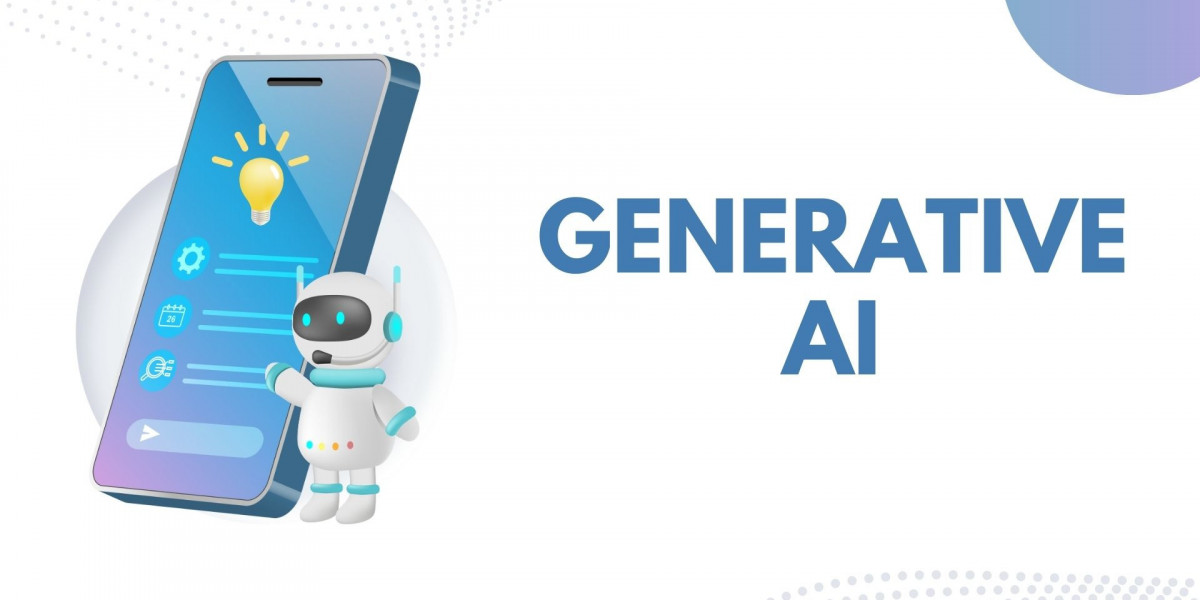In a world where speed, personalization, and 24/7 responsiveness are the norm, traditional rule-based chatbots can’t keep up. We have seen an enterprise shift towards generative AI models—capable of understanding human language, learning context, and generating intelligent and human-like responses. At the center of this shift is the strategic role of an AI engineering company, helping businesses build the next generation of virtual assistants that can drive real outcomes—be it customer service efficiency, improved lead conversion, or enhanced employee productivity.
Moving from Scripted Bots to Intelligent Agents
The earlier versions of chatbots were based on pre-programmed flows and decision trees. They could handle FAQs and perform basic tasks but failed when conversations went off-script. Customers were left frustrated, and businesses saw diminishing returns.
Generative AI changes that completely.
Built on Large Language Models (LLMs), generative AI enables chatbots to understand nuances in language, pick up on customer intent, and respond with contextually relevant information. These virtual assistants no longer depend on static scripts—they continuously think, adapt, and learn.
For instance, a generative AI-powered assistant at a retail brand doesn’t just tell a customer where their order is—it can make product recommendations, offer discounts based on sentiment detection, and even alert logistics teams if multiple customers are facing the same delay. This is intelligent problem-solving, not just query resolution.
Real-Time Learning and Context Awareness
Generative AI models can be trained on company-specific data—product catalogs, internal policies, compliance frameworks, past conversations, and even tone of voice. This makes them contextually aware from day one.
But the real strength lies in real-time learning.
These virtual assistants gain a holistic understanding of the business when integrated with CRM systems, knowledge bases, and ticketing tools. They follow a learning approach, and these virtual assistants continuously refine their responses with each customer interaction.
Moreover, these AI-powered agents can handle many conversations, remember prior interactions, and switch between topics without losing track—critical capabilities in high-value or emotionally sensitive customer journeys.
Enterprise Use Cases
Generative AI has its impact far beyond customer service:
1. Internal IT and HR Helpdesks: As corporate professionals, we all have been a part of long wait times or repetitive processes when dealing with IT or HR teams. A Generative AI assistant can resolve L1 queries, automate password resets, assist with onboarding documentation, and even initiate support tickets without human intervention.
2. Sales Enablement: The sales team uses multiple dashboards, but with AI assistants, they can pull up customer profiles, deal history, or competitor comparisons—just by asking in plain language. This cuts down research time and enhances productivity.
3. Healthcare and Life Sciences: Healthcare operations are hectic. GenAI-powered virtual assistants in hospitals or life sciences organizations can help schedule appointments, send prescription reminders, answer insurance queries, and ensure compliance with HIPAA or similar regulations—all while maintaining patient privacy.
In every scenario, what differentiates Generative AI-powered assistants is their ability to deliver meaningful engagement and business value.
Security, Privacy, and Responsible AI
Deploying Generative AI in customer or employee-facing roles requires a careful approach to data governance.
Modern AI engineering companies are building enterprise-grade assistants that are secure, explainable, and compliant. Role-based access control, data encryption, audit logs, and hallucination filtering are no longer optional—they are baked into the architecture.
Enterprises must follow responsible AI practices, such as bias detection, red-teaming, and transparency reporting. These practices help enterprises mitigate risks while ensuring fair, inclusive, and accurate conversational experiences powered by advanced intelligence.
Integration with Enterprise Systems
For generative AI to truly deliver on its promise, it must integrate deeply with the organization's existing infrastructure.
Whether it’s ERP platforms like SAP, CRMs like Salesforce, or custom APIs—today’s AI engineering specialists are enabling seamless integrations so that the chatbot or assistant becomes a part of the workflow, not a standalone channel.
Take an insurance firm, for example. A generative AI assistant integrated with the policy database and claims processing systems can walk a customer through the entire claims journey, recommend missing documents, and even expedite approvals—all in one interaction.
These are not just productivity gains—they translate into reduced operational costs, better customer loyalty, and faster revenue realization.
The Road Ahead: AI Agents as Business Co-pilots
We're now entering a phase where chatbots are no longer just support tools. They are becoming business co-pilots—proactively suggesting actions, predicting customer needs, and even initiating workflows.
In the coming years, we’ll see virtual assistants evolve into multi-modal agents—capable of processing voice, images, documents, and real-time analytics. Think of an executive assistant who can summarize board meeting documents, suggest strategic partnerships based on market trends, and schedule follow-ups with investors—all through a single conversational interface.
That future is not five years away—it’s already being piloted by forward-thinking enterprises today.
Also Read: Impact of Generative AI-Based Shopping Assistant Chatbots in eCommerce
Final Thoughts
Generative AI continuously advances, and early benefits will belong to those who invest early. For enterprises looking to stay ahead, partnering with an experienced AI engineering company is no longer an option—it’s a strategic necessity. The goal is no longer about handling more conversations, it’s about creating more meaningful ones.









